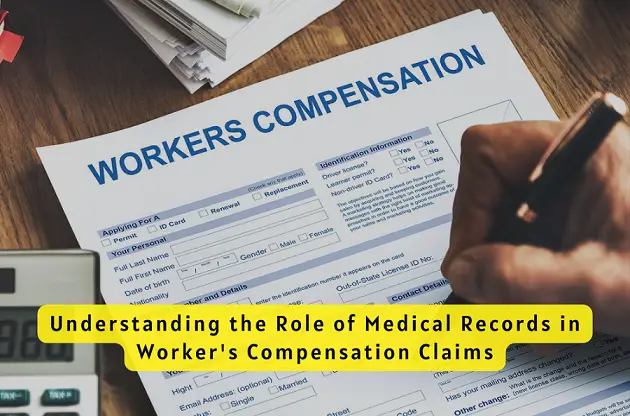Medical records play a critical role in worker's compensation claims. They serve as objective evidence of an injured worker's condition and treatment progress. These records include detailed information such as diagnosis, treatment plans, medications prescribed, surgical procedures, and rehabilitation therapies. They provide a comprehensive overview of the injured worker's medical journey, allowing for a clear understanding of the impact the workplace incident had on the individual's health.
Medical records help establish the need for ongoing medical care and potential long-term effects of injuries. They provide a roadmap for the injured worker's recovery, outlining the need for future treatments, therapies, and potential limitations on their ability to work. This information is crucial in determining the appropriate compensation for the injured worker.
The Significance of Medical Records in Worker's Compensation Claims
When it comes to worker's compensation claims, medical records are not just a collection of documents; they tell a story. Each entry in the medical records reveals a piece of the puzzle, allowing the parties involved to understand the full extent of the injuries sustained by the worker. For example, the diagnosis section of the medical records provides valuable insights into the specific medical conditions resulting from the workplace incident. It may include details about fractures, sprains, strains, or even more severe injuries like spinal cord damage or traumatic brain injuries.
Furthermore, the treatment plans documented in the medical records shed light on the steps taken to address the worker's injuries. These plans may include a combination of medication, physical therapy, occupational therapy, and other specialized treatments. By examining the treatment plans, the parties involved in the worker's compensation claim can gain a deeper understanding of the medical interventions required to facilitate the injured worker's recovery.
The medications prescribed section of the medical records provides crucial information about the pharmaceutical interventions utilized to manage pain, reduce inflammation, or address other medical conditions resulting from the workplace incident.
In some cases, surgical procedures may be necessary to treat the injuries sustained in the workplace incident. The surgical procedures section of the medical records outlines the specific surgeries performed, including details about the surgical techniques employed, the duration of the procedures, and the expected outcomes. This information helps determine the level of medical intervention required and provides insights into the potential limitations on the injured worker's physical abilities.
Rehabilitation therapies are often an integral part of the injured worker's recovery process. The medical records document the various rehabilitation therapies utilized, such as physical therapy, occupational therapy, and vocational rehabilitation. These therapies aim to restore the injured worker's physical function, improve their ability to perform daily activities, and facilitate their return to work. By examining the rehabilitation therapies section of the medical records, the parties involved can assess the ongoing need for these therapies and the potential impact on the injured worker's ability to resume their pre-injury job.
Overall, medical records provide a comprehensive and detailed account of the injured worker's medical journey, from the initial diagnosis to the ongoing treatment and potential long-term effects. They serve as a vital source of information for all parties involved in worker's compensation claims, including the injured worker, their legal representation, insurance companies, and medical professionals. By carefully analyzing the medical records, these parties can gain a deeper understanding of the injuries sustained, the necessary medical interventions, and the appropriate compensation for the injured worker.
The Impact of Medical Records on the Outcome of Worker's Compensation Claims
Medical records can significantly impact the outcome of workers’ compensation claims. Their detailed and documented nature provides credibility and strengthens the injured worker's case. By presenting accurate medical records, the injured worker can demonstrate the direct link between the workplace incident and the resulting injuries and prove the extent of their damage.
Moreover, medical records provide a basis for assessing the level of impairment and disability caused by injuries. They help determine the injured worker's ability to return to work, the need for vocational rehabilitation, and the potential for future disability benefits. The more comprehensive and detailed the medical records, the stronger the case for obtaining fair compensation.
The Potential Challenges of Using Medical Records in Worker's Compensation Claims
While medical records are vital in workers’ compensation claims, there can be challenges associated with their use. One common challenge is the retrieval and organization of medical records. In some cases, medical records may be scattered across multiple healthcare providers, making it time-consuming to gather all the necessary information.
Furthermore, the interpretation of medical records can be complex, especially for individuals without medical expertise. Understanding the terminology, test results, and treatment plans may require the assistance of medical professionals or experts. This can add an additional layer of complexity to worker's compensation claims.
Additionally, medical records may sometimes contain conflicting information or be subject to differing interpretations. In such cases, it becomes crucial to seek expert opinions or second medical evaluations to ascertain the accuracy and completeness of the records.
Conclusion
Medical records are an integral part of worker's compensation claims. They provide the much-needed evidence to establish the causal link between the workplace incident and the resulting injuries. Up-to-date medical records help quantify the damages and determine the appropriate compensation for the injured worker. They play a critical role in assessing the level of impairment and disability, potential long-term effects, and the need for ongoing medical care. However, retrieving, organizing, and understanding medical records can present challenges. Therefore, it is essential to seek the assistance of professionals in navigating through these complexities and ensuring the full potential of medical records in worker's compensation claims.

